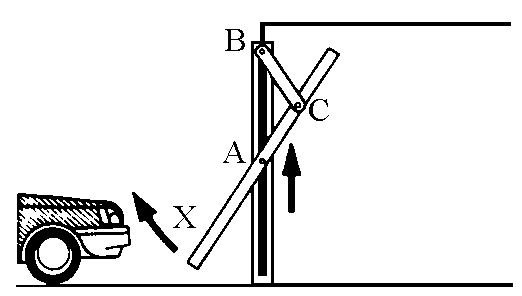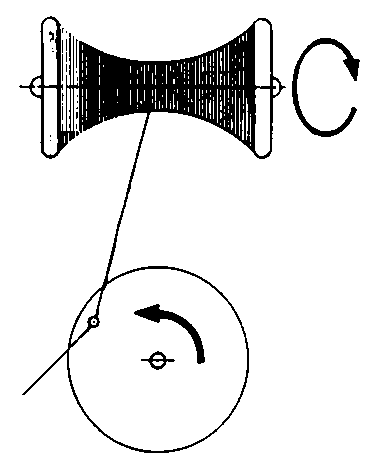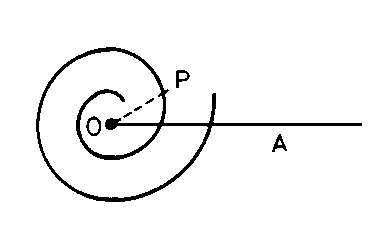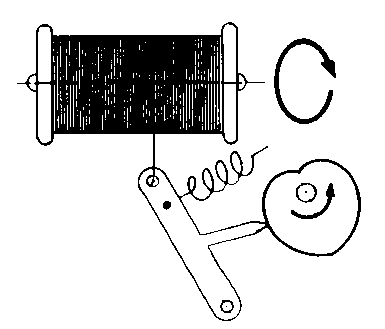|
Curves and mechanisms
F. Conti
(from the catalogue of the exhibition)
What is a mechanism ?
The problem of
rectilinear motion without friction
Watt's mechanism
Tchebycheff's
mechanism
Peaucellier's inverter
Hart's connecting rod
mechanism
Curves, connecting rod mechanisms and profiles
The
articulated quadrilateral and some applications
|
|
Curves, connecting rod mechanisms and profiles
|

|
Algebraic curves and connecting rod mechanisms
In 1875 Kempe demonstrated that any algebraic curve can be drawn
with a connecting rod mechanism. But also for a simple curve like a conic section, the mechanism
can be very complicated.
In the movement of a horizontally pivoted door, like the ones of
many garages, the point X describes an ellipse, but it would be
out of place to state that the mechanism was realised for this purpose.
|
|


|
Profiles and curves
On the contrary, in technology it sometimes occurs that it is the
profile of a certain curve that determines
the functions of a mechanism.
Just one example is enough: to evenly wind a thread around a spool it is necessary
that the slide that guides the thread moves with constant speed
(alternatively from right to left and from left to right). If the simplest
possible mechanism was employed, with a slide of the thread moving
circularily and evenly, the projection of such slide on the axle of the spool
(which is the position of the winding thread) would move harmoniously,
placing a lot more thread at the extremities than at the centre.
A solution to the problem can be obtained using the spyral of Archimedes.
This is a curve where the points P have the following property: their distance
from a fixed point O increases proportionally to the angle formed by
the segment PO with a reference fixed half-line OA. It is a curve that
is often encountered in everyday use objects (magnetic tapes, roll of ropes,
the decorations of certain cakes ...).
Using a cam formed by two "block" of the spiral of Archimedes
it is very easy to solve the problem of winding the thread evenly.
This is the solution universally adopted to wind the
"spool " in sewing machines.
|


|
|
|